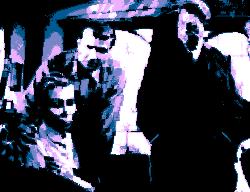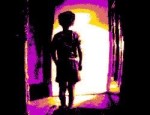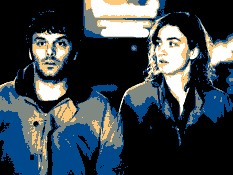Film Review

The film was directed in a suitably low-key manner by Jean-Paul Le Chanois, who had a track record of dealing with the important social and moral themes of the day. A few years previously he had had a massive hit with Papa, maman, la bonne et moi... (1954), which dealt with the very topical problem of the scarcity of housing in post-war France, and before this he had challenged the failings of the French education system in L'École buissonnière (1949) and society's attitudes to single parents in Sans laisser d'adresse (1951). After this succcesful first collaboration with Gabin, Le Chanois would work with the actor on three subsequent films, including the overblown blockbuster Les Misérables (1958) and engaging comedy Le Jardinier d'Argenteuil (1966).
© James Travers 2002
The above content is owned by frenchfilms.org and must not be copied.
Film Synopsis
Docteur Laurent leaves Paris to start a new practice in a French mountain community. At first, he is treated as an outsider and shunned by the locals. Then, after he has given a talk on a new pain-free method of child birth, the women of the little village begin to warm to him. However, some people are determined to oppose his new methods...© James Travers
The above content is owned by frenchfilms.org and must not be copied.
Similar Films
Here are some other films you may enjoy watching:- Oedipus Rex (1957)
- La Religieuse (1966)
- The Children's Hour (1961)
- Vredens dag (1943)
- Manon des sources (1953)
Other related links:
Film Credits
- Director: Jean-Paul Le Chanois
- Script: Jean-Paul Le Chanois, René Barjavel (dialogue)
- Cinematographer: Henri Alekan
- Music: Joseph Kosma
- Cast: Jean Gabin (Le docteur J. Laurent), Nicole Courcel (Francine), Silvia Monfort (Catherine Loubet), Henri Arius (Le docteur A. Bastid), Daxely (H. Simonet), Lucien Callamand (M. Bertrand), Josselin (M. Roux), Mag-Avril (Céline), Marthe Marty (La mère de Franchine), Germaine de France (Mme Vanolli), Raymone (La mère Loubet), Orane Demazis (La veuve Escalin), Yvonne Gamy (La sage-femme traditionnaliste), Henri-Jacques Huet (Antonin Escallin), Viviane Méry (Une habitante), Taty Rocca (Une habitante), Jenny Hélia (Une villageoise), Dany Caron (Une habitante de St-Martin Vésubie), Denise Montréal (Une habitante), Clo D'Olban (Une habitante)
- Country: France
- Language: French
- Support: Black and White
- Runtime: 110 min
- Aka: The Case of Dr. Laurent
The very best sci-fi movies

The best French war films ever made

